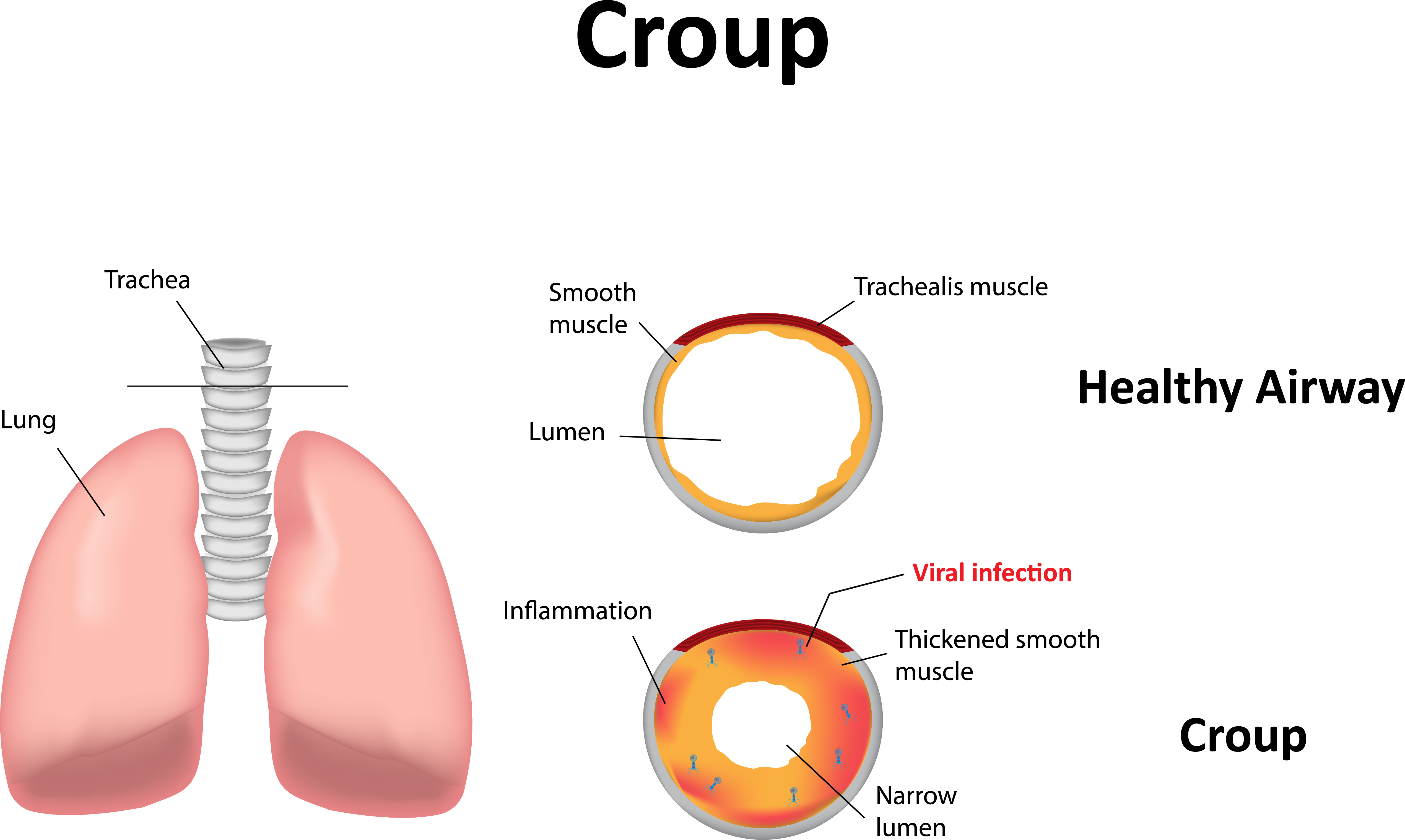 Croup is an infection (normally viral but can be bacterial) that affects the voice box (larynx) and the airway to the lungs (trachea). It most commonly affects children aged between 6 months and 3 years. Most cases of croup do not need to be treated because the condition usually gets better on its own and tends to only last for a short period of time.
Croup is an infection (normally viral but can be bacterial) that affects the voice box (larynx) and the airway to the lungs (trachea). It most commonly affects children aged between 6 months and 3 years. Most cases of croup do not need to be treated because the condition usually gets better on its own and tends to only last for a short period of time.
Quick Aids for Croup
If the child is distressed, sit them upright on your lap. It will also provide comfort and reassurance to the child by having you there. This is important because if your child is crying and distressed, it may make their symptoms worse. A mild case of croup can be treated at home. If the child has a fever, painkillers such as Paracetamol will help to lower his temperature. Always read the label of the medication box before administering to your child. You need to make sure that the dosage is right or otherwise you might cause more problems. You should also make sure that you give your child plenty of fluids to ensure that he remains well hydrated.
Do not give your child any medicine that may make them drowsy. Children often find it easier to breathe when they are alert. While your child is sleeping, propping them up with pillows may make it easier for them to breathe. If the child has croup, it is important that they avoid smoky places, because smoke may irritate their airway. Do not smoke around your child, and keep a window open to circulate fresh air. Cough medicines, short-acting beta-agonists (often used in inhalers to treat asthma), and decongestants are of no benefit to treating croup.
If Problems Persist
Speak to the GP, or pharmacist, if you are unsure about what type of painkiller is suitable for your child. You should also make sure that you read the dosage information on the packaging or the patient information leaflet that comes with the product. Make sure you follow the instructions about how much medicine to give your child.
Call an ambulance if your child is struggling to breathe. You should visit your GP if you are worried about your child’s breathing. The GP may decide to give your child soluble steroids to drink water.
For more information on training courses, visit our “Courses” page which also includes our First Responder and First Person on Scene (FPOS) Courses.
